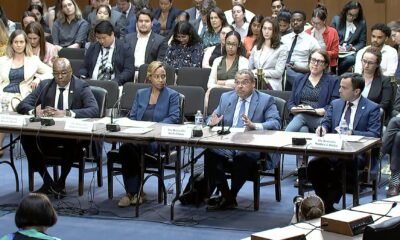arizona
Arizona Universities Stealthily Remove DEI Language Amid Trump Era Regulations

Arizona universities are navigating uncertain waters as the Trump administration’s executive order and state legislation threaten diversity, equity, and inclusion (DEI) funding. The directive mandates that public institutions eliminate DEI initiatives to avoid penalties affecting federal funding.
In response, the University of Arizona revised its land acknowledgment. UA President Suresh Garimella informed faculty that the university is cataloging its Diversity, Equity, Inclusion, and Accessibility (DEIA) programs in light of the executive order issued on January 20. The previous acknowledgment recognized the university’s location on Indigenous lands and its commitment to sustainability and partnerships with Native Nations.
However, the updated text omits the phrase “committed to diversity and inclusion,” prompting backlash from within the university community. Jacquelyn Francisco, president of the UA Native & Indigenous Law Students Association, criticized the lack of transparency surrounding this change. She expressed in a LinkedIn post, “A land acknowledgment should not be subject to silent revision or political convenience.”
In defense, the university stated that aligning with federal guidelines does not diminish its commitment to education for Native and Indigenous students. A spokesperson emphasized a continued dedication to honoring the land’s history through partnerships and research.
Both Northern Arizona University (NAU) and Arizona State University (ASU) are closely monitoring the evolving federal landscape concerning DEI policies. NAU noted it is gathering information to navigate these changes in alignment with its institutional values. ASU disclosed that it is assessing federal actions for their potential implications on campus operations.
Recent state legislative efforts reflect broader discussions on DEI practices. The Arizona House advanced a proposed constitutional amendment aimed at prohibiting racial or ethnic preferences in public education and hiring. Rep. Steve Montenegro, the primary sponsor, argued that the measure would ensure fairness and counter perceived racially divisive ideologies.
The Goldwater Institute voiced support for the amendment, advocating for a return to foundational American values of equality. Matt Beienburg, the institute’s education policy director, reaffirmed the importance of treating all individuals equally under the law, regardless of race.
In a recent email, President Garimella sought to reassure the UA community amid widespread concerns regarding potential policy shifts. He acknowledged the complexity of implementing federal directives and promised ongoing collaboration among university stakeholders to adapt to the changing landscape of higher education.

















